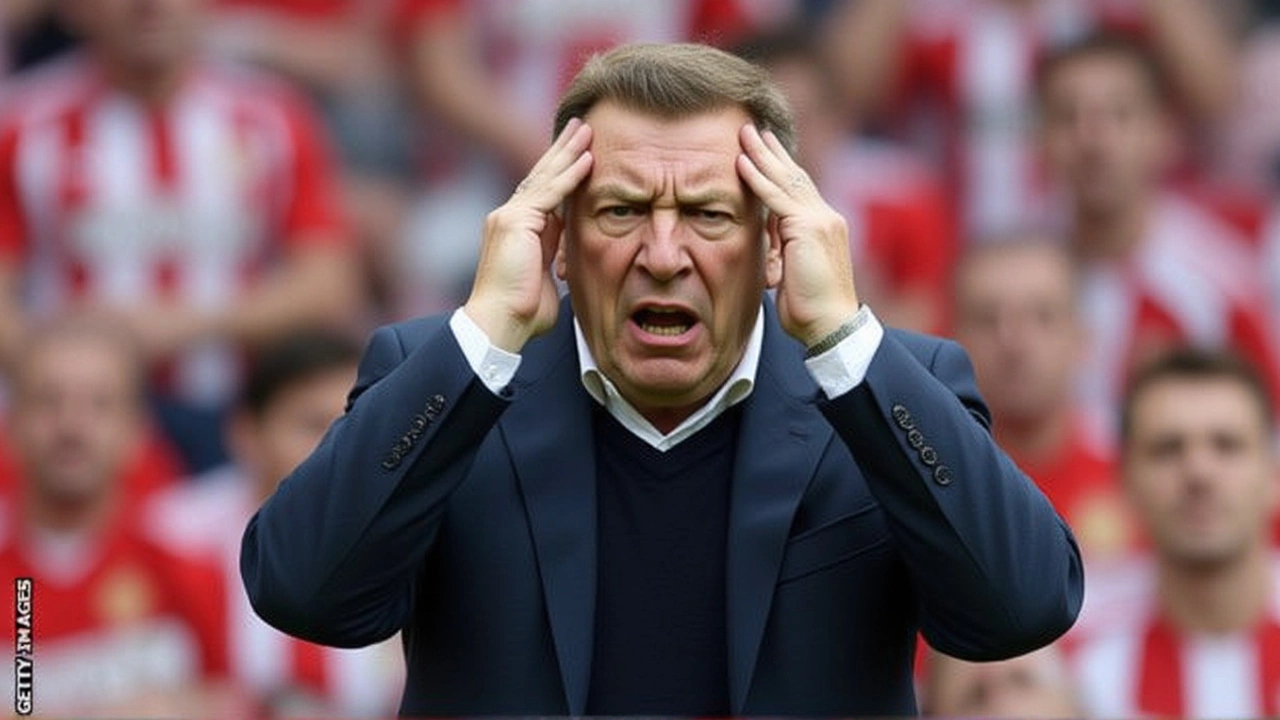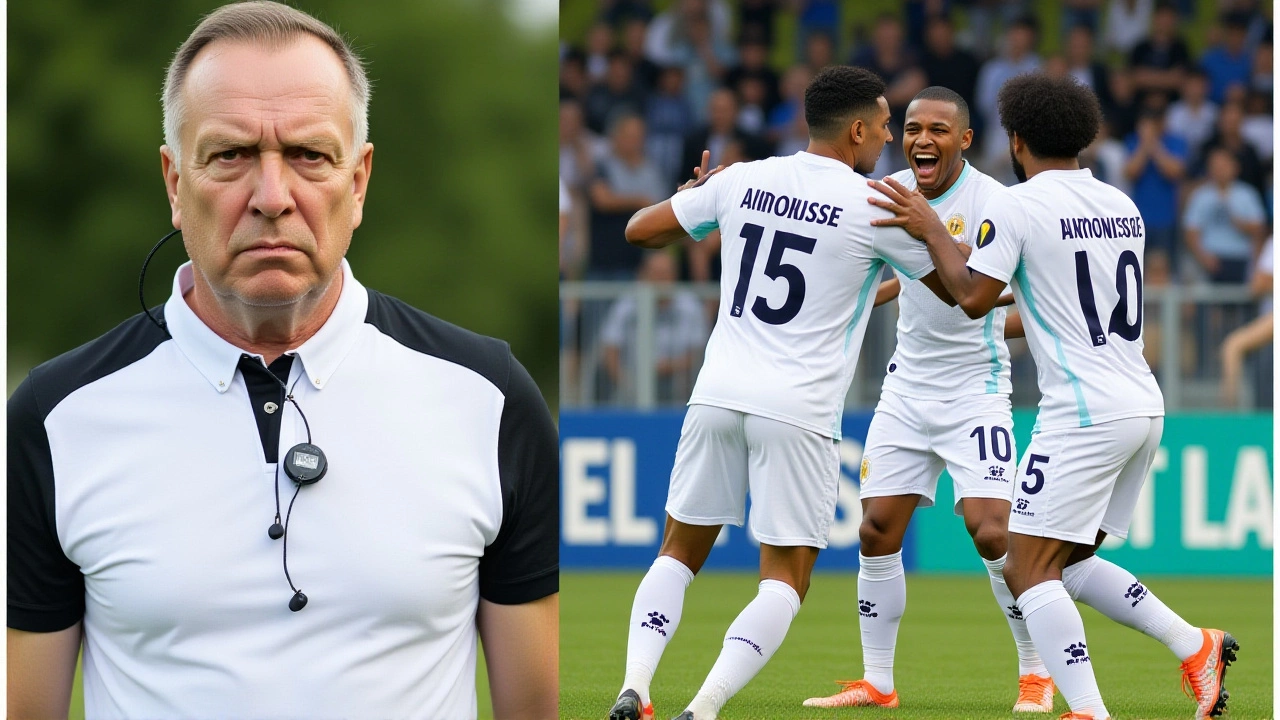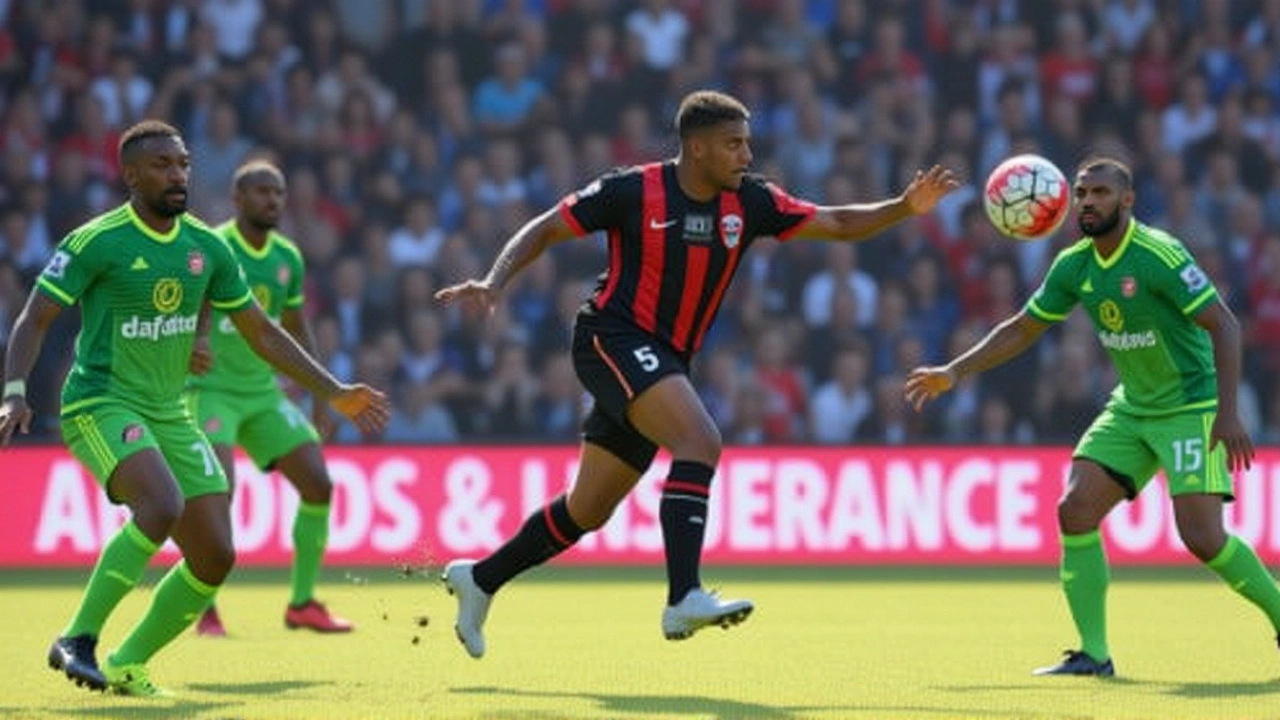It was a 700-mile round trip for nothing. On February 6, 2016, hundreds of Sunderland AFC supporters boarded coaches at dawn, braving winter roads from Sunderland to Dean Court in Bournemouth, only to watch their team collapse 2-0 to a newly-promoted side. When the final whistle blew, the silence among the traveling fans was louder than any chant. And in the press room, Dick Advocaat, the 68-year-old Dutch manager, didn’t offer excuses. He offered an apology. "I feel sorry for the Sunderland fans," he said, his voice heavy. "I’m very sorry."
Why This Loss Hurt More Than Most
The numbers told a brutal story. After 24 Premier League matches in the 2015-2016 season, Sunderland had just 10 points. They sat in 19th place — one point above Aston Villa, and six points from safety. Three wins in 24 games. That’s not a bad run. That’s a collapse. And for fans who’d seen Advocaat save them from relegation the season before — with a 3-0 win over Everton on the final day of 2014-2015 — this felt like betrayal.
The journey itself was symbolic. 345 miles each way. Over 11 hours on the road for many. These weren’t casual supporters. These were the ones who’d stood by the club through managerial chaos, transfer flops, and a winter that felt colder than usual. They came for hope. They left with nothing but a bus ticket and a sinking feeling.
Advocaat’s Impossible Task
Advocaat had returned to Sunderland AFC in March 2015 after Billy McKinlay’s caretaker spell. His mission: keep them up. He did it. With grit, discipline, and a last-gasp win over Everton, he became a hero. But the summer of 2015 brought a new challenge — a squad rebuilt with expensive signings, including Victor Anichebe, Lamine Koné, and Jordan Pickford. The hope was for a top-half finish. What followed was a slow-motion disaster.
By February, the team had lost six of their last seven league games. The defense, once solid, was leaking goals. The attack, once expected to thrive, looked disjointed. And the fans? They were exhausted. Not just from travel. From disappointment.
"We should be ashamed," Advocaat admitted to ESPN. "We’re not playing like a Premier League team. We’re not playing like Sunderland." He didn’t blame the players. He didn’t blame the weather. He didn’t blame the referee. He blamed himself.

The Ripple Effect: Relegation Fear in the North East
Relegation from the Premier League isn’t just about losing money. It’s about identity. Sunderland, a city built on coal, shipbuilding, and football, had spent 17 of the last 18 seasons in the top flight. The thought of dropping to the EFL Championship — a league where crowds dwindle, sponsors vanish, and hope grows thin — was terrifying.
At the time of the Bournemouth loss, 15 games remained. Every point was gold. Sunderland’s next three fixtures? Against Liverpool, Manchester United, and Chelsea. No easy wins there. And with the club’s financial structure tied to Premier League revenue, a drop could mean selling key players, cutting wages, and dismantling what little stability remained.
"It’s not just about survival," said local journalist Paul Bate, who’s covered Sunderland for over 20 years. "It’s about dignity. These fans have endured decades of ups and downs. But this? This feels different. It feels like the end of an era. And Advocaat knows it."
What Happened Next — And Why It Matters
Advocaat’s apology didn’t turn things around. Sunderland lost their next match against Liverpool 2-1. Then they lost to United. Then they drew with Stoke. The winless streak stretched to 11 games. By April, with only two wins all season, the club announced Advocaat’s resignation on April 11, 2016 — two months after the Bournemouth defeat. He was replaced by David Moyes, who couldn’t stop the fall. Sunderland were relegated on May 15, 2016, ending their 17-year Premier League stay.
But the apology? It stuck. In a world where managers often deflect blame, Advocaat owned it. He didn’t hide behind tactics or injuries. He looked the fans in the eye — even if only through a microphone — and said he was sorry. That’s rare. And for many, it was the only thing that made the season bearable.

The Legacy of a Manager Who Cared
Advocaat had managed giants: Rangers, Zenit Saint Petersburg, even the Netherlands national team. He won trophies. He coached legends. But in Sunderland, he became something else — a man who felt the weight of a city’s pride. His apology wasn’t just about one match. It was about the 700-mile journeys, the chants that faded, the kids who grew up believing in this club, only to see it crumble.
"He didn’t have to say it," said one Sunderland fan who made the trip to Bournemouth. "But he did. And that meant more than any goal we scored that season."
Frequently Asked Questions
Why did Dick Advocaat apologize to Sunderland fans specifically?
Advocaat apologized because hundreds of Sunderland supporters traveled over 700 miles round-trip from Sunderland to Bournemouth to watch the match — only to see their team lose 2-0 in another winless performance. He recognized the emotional and financial burden fans carried, and in a rare display of accountability, he acknowledged their loyalty wasn’t being repaid on the pitch.
How bad was Sunderland’s form before the Bournemouth match?
Before the February 6, 2016 defeat, Sunderland had played 24 Premier League matches in the 2015-2016 season and earned only 10 points — three wins, one draw, and 20 losses. They sat in 19th place, just above Aston Villa, with a goal difference of -27. Their last victory had come in October 2015, over 15 weeks earlier.
What was the significance of AFC Bournemouth in this match?
AFC Bournemouth had just been promoted to the Premier League after winning the 2014-2015 Championship. Their 2-0 win over Sunderland was a major upset — and a sign of how far Sunderland had fallen. Beating a newly promoted team was expected. Losing to them, especially after a 700-mile trip, made the result feel even more humiliating for the visitors.
Did Advocaat’s apology help save Sunderland from relegation?
No. Despite the emotional weight of his apology, Sunderland lost six of their next seven games and were officially relegated on May 15, 2016. Advocaat resigned on April 11, 2016, and was replaced by David Moyes, who couldn’t reverse the tide. The apology was a moment of humanity, not a tactical fix.
How did this match compare to other low points in Sunderland’s history?
The Bournemouth defeat was one of the most emotionally devastating moments of the 2015-2016 season, but not the worst. That came later, when Sunderland lost 4-0 to Manchester City in April — a game where they looked mentally broken. Still, the Bournemouth loss was the moment the fans’ faith truly cracked, especially after such a long journey and such a predictable outcome.
What happened to Dick Advocaat after leaving Sunderland?
After leaving Sunderland, Advocaat returned to management in Russia, taking charge of FC Krasnodar in 2017. He later served as an advisor for the Netherlands national team and remained active in football circles. Though he never managed in England again, many fans still remember him for his honesty — especially that apology in Bournemouth.

Hi there, I'm Ethan Kingswood, a sports enthusiast with a particular passion for cycling. I've been involved in the world of sports for over a decade and have gained expertise in various disciplines. My love for cycling has led me to write engaging articles and blog posts about it, sharing my knowledge and experiences with fellow cycling enthusiasts. I also enjoy participating in cycling competitions and training others to improve their skills. My ultimate goal is to inspire more people to embrace the exciting and rewarding world of cycling.